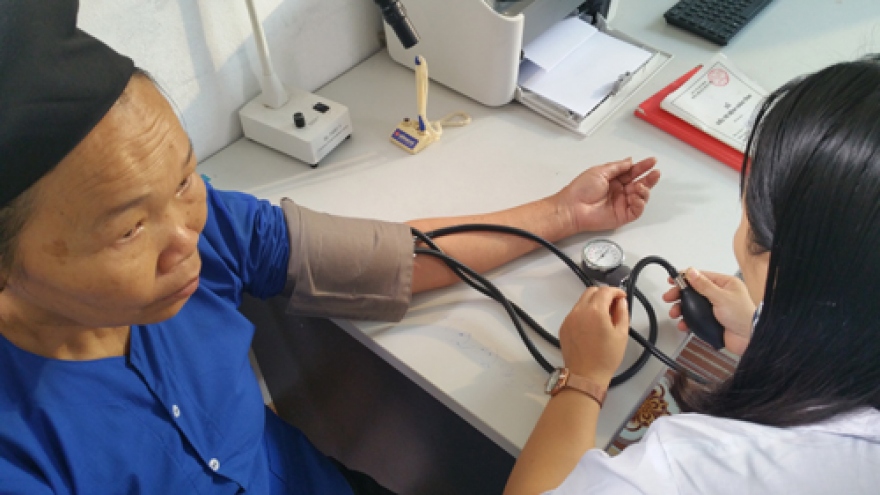Vietnam accelerates universal healthcare drive with EU, WB funding
VOV.VN - Vietnam will step up training of local medical staff, following positive results of a project funded by the World Bank and the European Union in the past two years as the country seeks to provide better primary health care to the entire population, officials said on March 6.
 |
Vietnam, which has one of Asia’s fastest-growing economic growth rates in recent years, has been able to locate more resources to boost the health sector charged with a government target to serve every citizen by 2025.
The country, now with a population of 95 million, has built a medical station at each of its 11,100 communes nationwide. But a lack of proper equipment, medicine as well as medical staff being able to use them has often triggered local people to skip their commune health stations (CHSs) to seek treatment at larger hospitals, leading to the overcrowding problem.
In November 2013, the government approved the $121-million "Health Professionals Education and Training for Health System Reforms Project" (HPET project) for implementation between 2014 and 2020, using funding mainly from the World Bank and the European Union, to improve the quality of education and training for the health workforce and strengthen primary health care (PHC) capacity in the 15 most difficult provinces, thus to partly reduce pressure at overloaded hospitals at higher levels.
“We financed a number of concrete interventions, especially Component 3 of the HPET project, that strengthened capacity and improved grassroots health system in the 10 poorest provinces of Vietnam, like in Lai Chau, Lao Cai, Son La and Cao Bang – where health indicators are still lagging behind,” Antonio Recca, head of the EU delegation to Vietnam’s Finance, Contracts and Audit Section, told a conference in Hanoi. The EU is the largest grant donor in Vietnam’s health sector.
The two-day conference is reviewing all the support activities for Vietnam’s grassroots health system, using the EU grant worth $10 million for 10 of the 15 provinces in HPET zone in the 2017-2018 period.
HPET has built six training programs for PHC teams based on the Family Medicine principles and by the end of 2018 all its beneficiary provinces on a long stretch from mountainous provinces along the northern border with China to the Central Highlands region near Cambodia have completed training of trainers (TOT) courses. More than 8,900 local health professionals have enrolled in training courses, including more than 1,100 trainers and 7,800 CHS staff, mostly achieving the training targets, based on HPET statistic.
HPET has also supported the Health Ministry’s development of CHS model in 26 communes through giving guidelines on functional diagrams, list of equipment as well as organising conferences, workshops and study tours, Le Minh Sang, Task Team Leader at the World Bank office in Vietnam told the conference.
Besides, HPET has utilized various communications channels, broadcasting TV and radio reports in Vietnamese and ethnic minority languages, posting stories on e-newspapers, organizing photo exhibitions and community activities to raise public awareness and understanding of the importance, achievements and impacts of PHC system strengthening to the health of Vietnamese people, Sang said.
Such communication products also help facilitate knowledge exchange of challenges and effective interventions in PHC system strengthening, while highlighting the role and contributions of the World Bank and the EU.
With HPET operation so far reaching success, officials are weighing more activities ahead.
“We’ve already been talking with World Bank officials to expand HPET training to other provinces in Vietnam”, Nguyen Ngo Quang, head of the project and who is also managing the Health Ministry’s Science, Technology and Training Department, said at the conference, adding that a final decision has yet to be reached.
This year, HPET plans to update teaching curricula and provide on-the-job training on non-communicable diseases, such as hypertension, diabetes, heart disease, and chronic respiratory diseases. It will also conduct post-training performance evaluation of PHC teams and improve information technology to better manage patients’ health records in line with the Family Medicine principles.
The Family Medicine principles aim at providing continuing, comprehensive and coordinated care to individuals and families. They also include community, disease prevention and family care.

